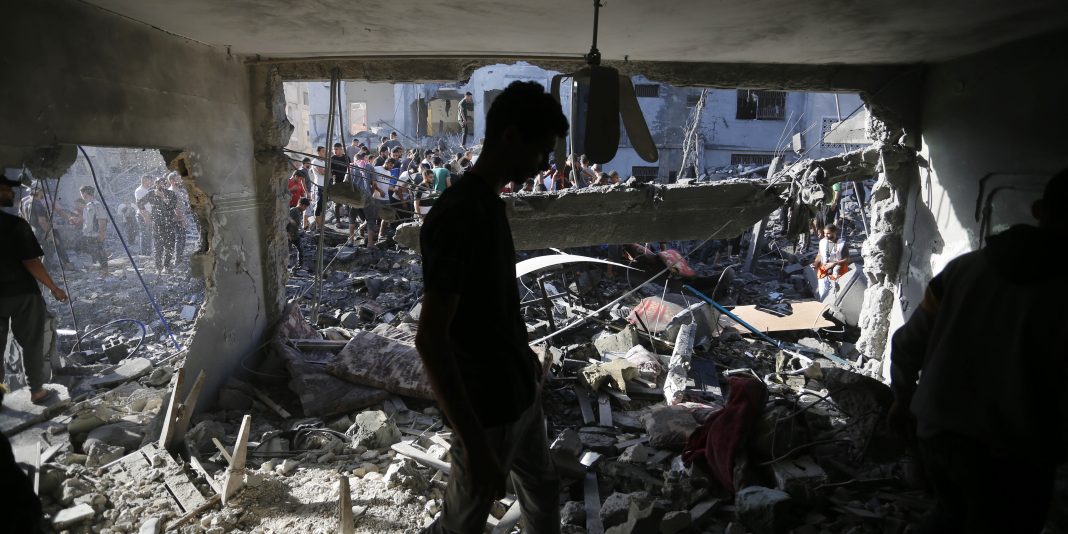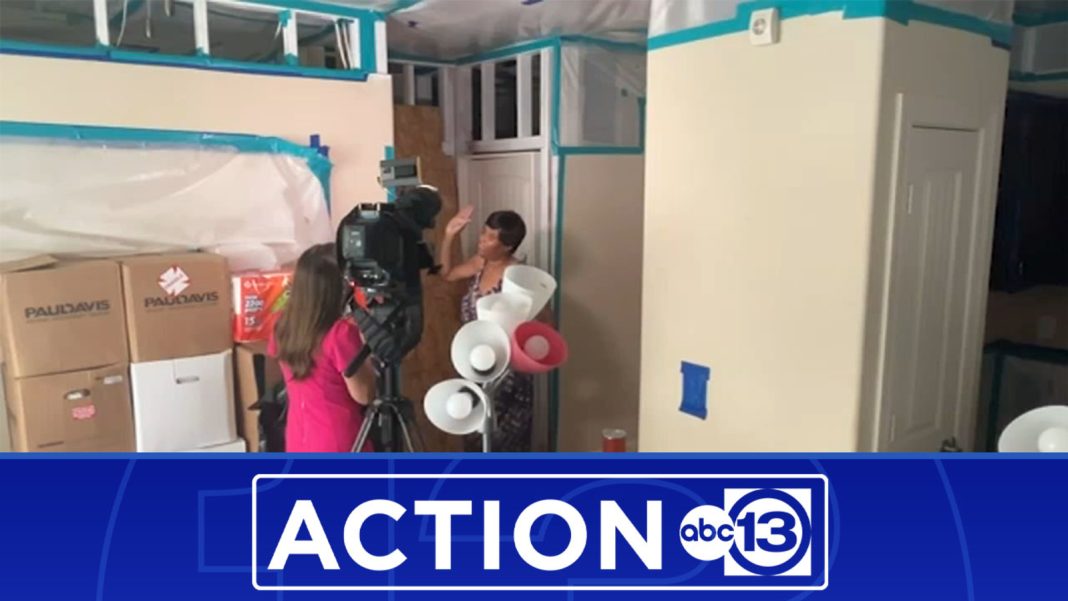Title: Dire Conditions in Rafah: The Plight of Palestinian Civilians Amid Israeli Occupation
Introduction:
The Israeli military’s swift takeover of the Palestinian side of the border crossing with Egypt in Rafah has severed the only corridor connecting Palestinians in Gaza to land not controlled by Israel. This move, accompanied by the destruction of the “I love Gaza” monument, symbolizes the relentless assault on Palestinian civilians. The closure of the Rafah border crossing has virtually shut off aid to Gaza, leaving its residents in dire conditions.
The Plight of Palestinian Civilians:
Residents of Gaza are once again forced into a dystopian game show, where they must navigate Israeli-created maps to avoid certain death. The Israeli military’s instructions on social media have directed civilians in Rafah to move back towards central Gaza, an area left in ruins after sustained Israeli attacks. UNICEF has pleaded with the Israeli government to cease fire and reverse its plans for a full-scale invasion of Rafah, emphasizing the dire situation faced by the 600,000 children seeking shelter in the area.
Unsafe Evacuation:
UNICEF’s Tess Ingram highlights the unsafe conditions faced by Palestinians being directed to evacuate to certain areas. The lack of basic services, such as water, toilets, and shelter, raises concerns about their well-being. Additionally, these areas have been subject to strikes despite being designated as safe zones. The impact of a ground offensive on one of the most densely populated areas in the world is a significant concern.
Squalid Living Conditions:
Prior to the Israeli attacks, Rafah was home to approximately 250,000 people. However, due to Palestinians fleeing the violence, the population has surged to an estimated 1.4 million. UNICEF’s Ingram describes the shocking reality for children living in Rafah, where squalid conditions prevail. Makeshift shelters expand onto roads and sidewalks, leaving people crowded together in cramped spaces.
Humanitarian Aid Crisis:
UNICEF has been unable to deliver supplies or fuel into Gaza since Sunday, exacerbating the humanitarian crisis. The lack of fuel hampers important systems like desalination plants, hospitals, and food delivery. Without fuel, these vital services will cease to exist, further worsening the situation for the already vulnerable population.
Israeli Occupation and False Promises:
The seizure of Rafah by Israeli forces contradicts their claims of having no intention to occupy Gaza. Israel already had security inspections on the Egyptian side, delaying aid delivery since last year. The presence of tanks on the Gaza side only serves to militarize this reality further. Despite mild concerns expressed by the White House, the Biden administration intends to continue arming Israel, highlighting the ongoing support for the Israeli government.
Justifications for the Incursion:
The Israeli government has offered various justifications for the Rafah incursion, including defeating Hamas battalions, shutting down smuggling routes, and pressuring Hamas to release Israeli hostages. However, families of Israeli hostages have been demanding immediate action from Netanyahu to secure their release. The seizure of the border crossing indicates Israel’s determination to conquer Rafah, regardless of an agreement.
Dire Living Conditions:
UNICEF estimates that people in Rafah have access to only 3 liters of safe water per day, far below the recommended 15 liters per person in emergency situations. Sanitation systems are not functioning correctly, leading to open defecation and leaking sewage in the streets. Women and girls lack consistent access to sanitary products, and diapers for babies are scarce.
Uncertain Future:
If Israel expands its operations in Rafah, forcing a mass exodus of people, the areas they are directed to flee lack even the fragile infrastructure already present in Rafah. This exacerbates an already dire situation, particularly for vulnerable children who have survived months of war and bear physical and psychological scars. They require greater support, not less.
Conclusion:
The dire conditions in Rafah highlight the plight of Palestinian civilians amid Israeli occupation. The seizure of the border crossing and the closure of the Rafah border have left residents without access to essential aid and services. The international community must address this humanitarian crisis and work towards a peaceful resolution to ensure the safety and well-being of the Palestinian population.


